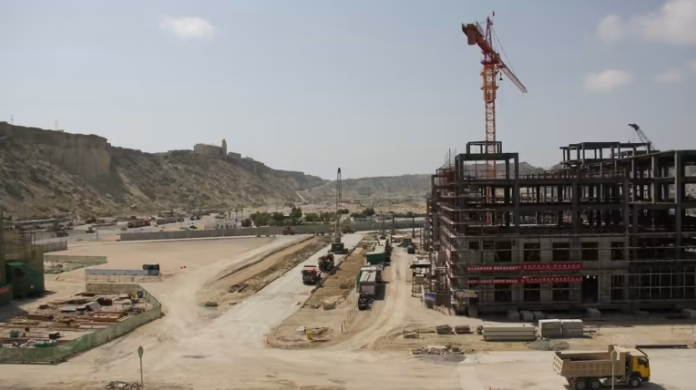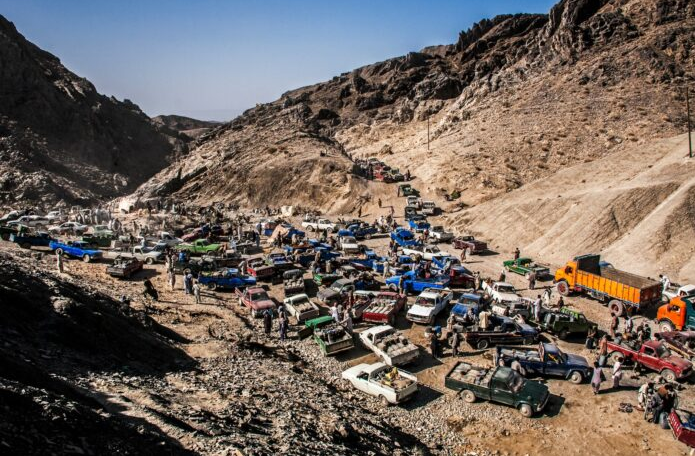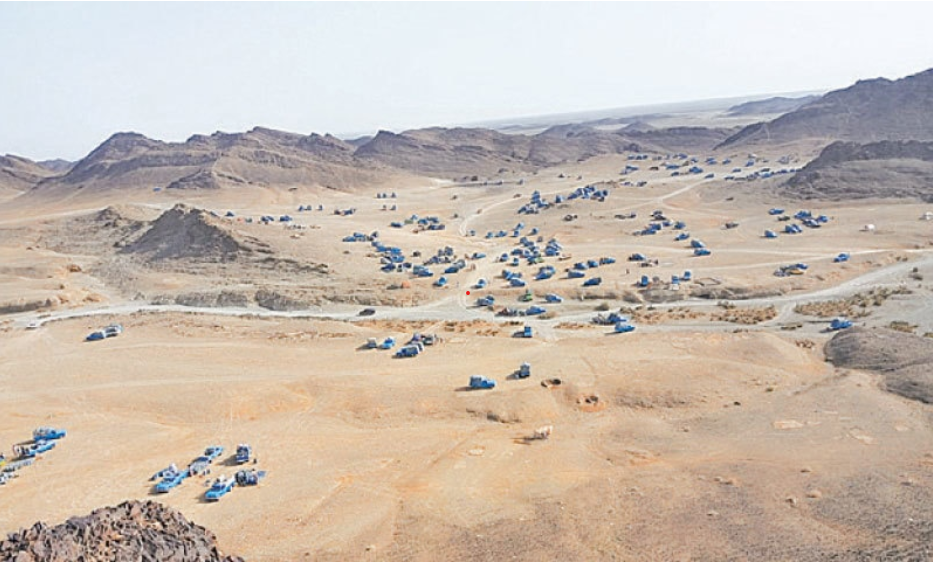Smuggling: Rising Up To A Challenge
Abdul Shakoor Khan
Quetta: Neither exports amplified significantly nor dollar inflows strengthened massively, yet we see some visible signs of economic improvement with the exchange rate coming down, the stock market showing upward trends, and commodity prices stabilising.
Simply seeing the course of events, there was not any rocket science behind this improvement except the nationalist sentiment, firm commitment, strong resolve, and proactive approach of the state.
These were just a couple of steps the caretaker government and the security institutions embarked on to successfully control the menace of smuggling at border crossings and tighten the noose against the smuggler mafia.
Cartels involved in the smuggling of fuel, luxurious items, and other daily-use commodities were smashed through a zero-tolerance policy of the state, curbing millions of dollars in cross-border illicit trade on a monthly basis.
As a result of the effective anti-smuggling drive, the exchange rate improved from $315 to $275 rupees per dollar, and the petrol price decreased to Rs 283 from Rs 330 per litre.
Similarly, after checking the flour and urea fertiliser smuggling to Afghanistan, the price of flour dropped from Rs 10,000 to Rs 7,500 per 40 kg and that of urea by Rs 500 to Rs 600 per sack. “The joint venture of the government and security agencies against the cartels continues unabated on all border crossing points,” said Ali Mardan Domki, Caretaker Chief Minister of Balochistan. “Though it was not an easy task to control smuggling, the state’s firm resolve against such mafias helped us take them down with full force.”
“The joint venture of the government and security agencies against the cartels continues unabated on all border crossing points,” said Ali Mardan Domki, Caretaker Chief Minister of Balochistan. “Though it was not an easy task to control smuggling, the state’s firm resolve against such mafias helped us take them down with full force.”
“With a loud and clear message of penalising state officials facilitating smuggling across the board and a policy of no mercy by the Prime Minister and the Army Chief, we boosted our morals to destroy the syndicate vigorously,” the Chief Minister remarked.
Although the provinces of Balochistan and Khyber-Pakhtunkhwa bordering Afghanistan had been safe heavens for smugglers, the Balochistan province was strategically important, sharing a 1268 km border with Afghanistan and a 909 km border with Iran. Besides, it also has a 760-kilometre-long coastline along the Arabian Sea.
The sparsely populated and largely barren province of Balochistan, covering approximately 44 percent of the total Pakistani land area (around 347,190 square kilometers), usually provided land routes to landlocked Afghanistan through Chaman and to Iran via Taftan.
Since only agriculture and livestock were the two main sources of livelihood for the majority of Balochistan’s poor populace, many of them were exploited by influential cartels to smuggle vehicles, spare parts, blankets, cloth, tyres, cigarettes, chaalia, drugs, sugar, urea, fuel, and non-custom-paid vehicles through the porous border for decades. The smuggling with neighbouring countries had adversely affected the country’s economy, creating a vicious black market, with sources claiming the volume of goods smuggled into Pakistan increased to 11.25 percent from 3.88 percent in recent years.
The smuggling with neighbouring countries had adversely affected the country’s economy, creating a vicious black market, with sources claiming the volume of goods smuggled into Pakistan increased to 11.25 percent from 3.88 percent in recent years.
“The smuggling was the major contributor to the economic downturn in the country as well as in Balochistan,” said Information Minister Jan Achakzai. “If the illicit cross-border trade caused billions of rupee losses annually to Balochistan, its cumulative impact on the national economy was in the trillions.”
He dispelled the impression that the lower strata of society were the ultimate beneficiaries of smuggling and argued that out of the total population, only 10000 people were associated with fuel transport activities along the Iranian border, 5000 to 7000 people at the Chaman border, and around 6000 people were associated with this business across the border.
“Eighty to ninety percent of illegally earned money directly goes to the cartels and syndicates,” the minister said. “Our stern action has smashed these cartels, and we shall continue with it.”
Reiterating government resolve to ensure alternate businesses for poor families who relied on smuggling, the minister said, it was only due to heavy losses to national kitty that a concerted strategy was formulated to tackle smuggling, trafficking, and drug addiction. With the government statistics showing Rs seven billion in Afghan reverse transit trade this year against Afghanistan’s total imports of Rs two billion, ten joint check posts have been established in Balochistan, jointly manned by the NLC, FIA, and Customs and Anti-Narcotics departments.
With the government statistics showing Rs seven billion in Afghan reverse transit trade this year against Afghanistan’s total imports of Rs two billion, ten joint check posts have been established in Balochistan, jointly manned by the NLC, FIA, and Customs and Anti-Narcotics departments.
In addition, a control room has been established in Quetta to monitor and coordinate anti-smuggling operations. Chief Collector Customs Balochistan supervises the operation, while Additional Secretary Home Department, DIG Police, and representatives of the Balochistan Frontier Constabulary and Intelligence Bureau will monitor operations as members.
A similar control room headed by the commissioner has been established in Makran Division to amplify the anti-smuggling operation in South Balochistan.
There is no denying the fact that the crackdown on smugglers in Balochistan resulted in massive seizures of smuggled goods, including 1,637 tonnes of sugar worth Rs one billion, which brought down the sugar price from Rs 250 to Rs 160 per kg.
Similarly, through the holistic anti-smuggling campaign, the authorities recovered 3400 kg of narcotics, and the ANF destroyed 3000 kg of chemical/crude ephedrine and 16 narcotics manufacturing installations in a couple of weeks, besides demolishing 48 drug compounds and wiping out drug cultivation on 70 acres of land.
No doubt it was the right action in the right direction, but what is direly needed is its continuation to save our economy and people from a total collapse and pave the way for a prosperous and healthy society.
Abdul Shakoor Khan is a Quetta-based APP correspondent. The feature report is released by APP.

Comments are closed.